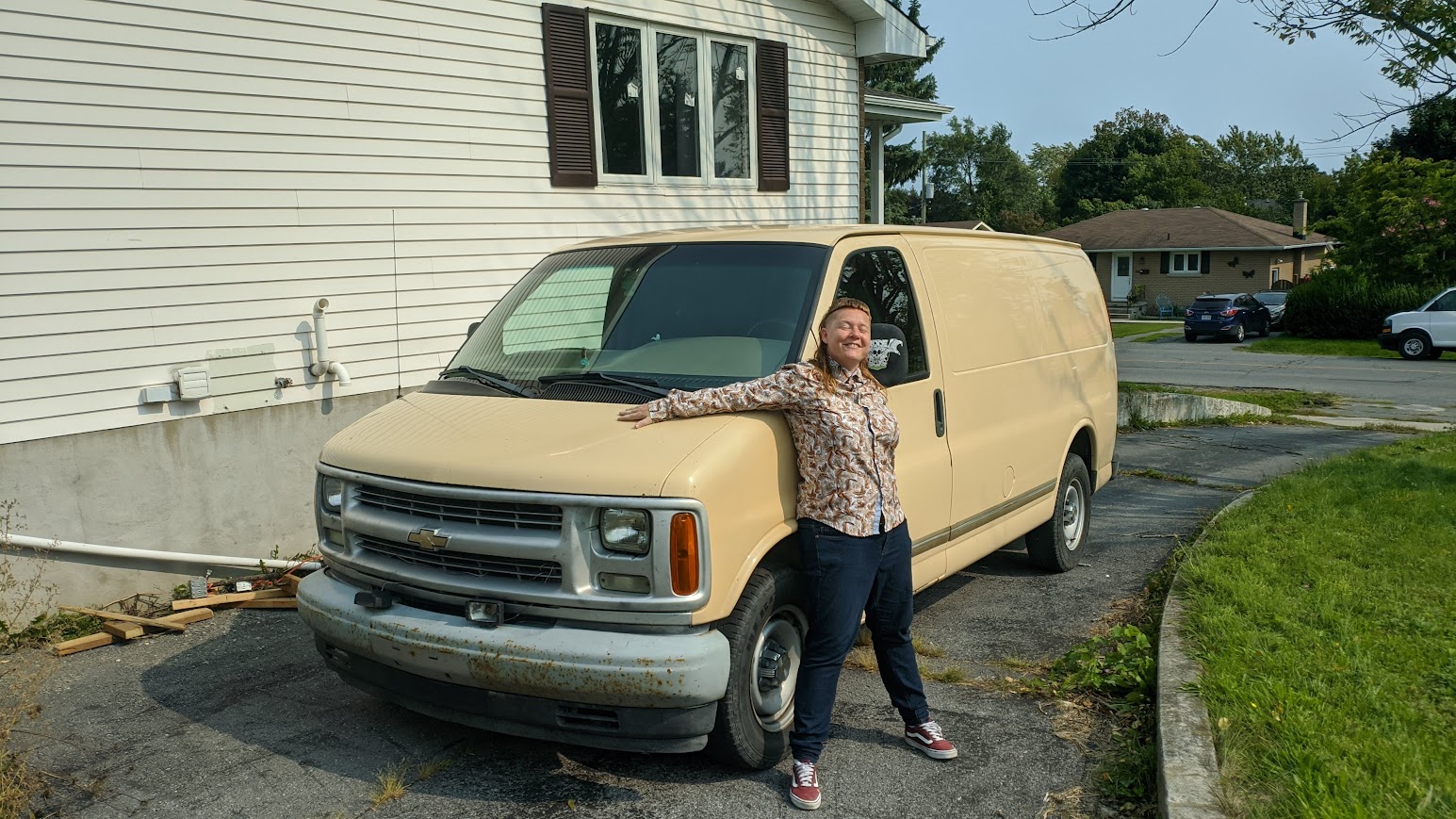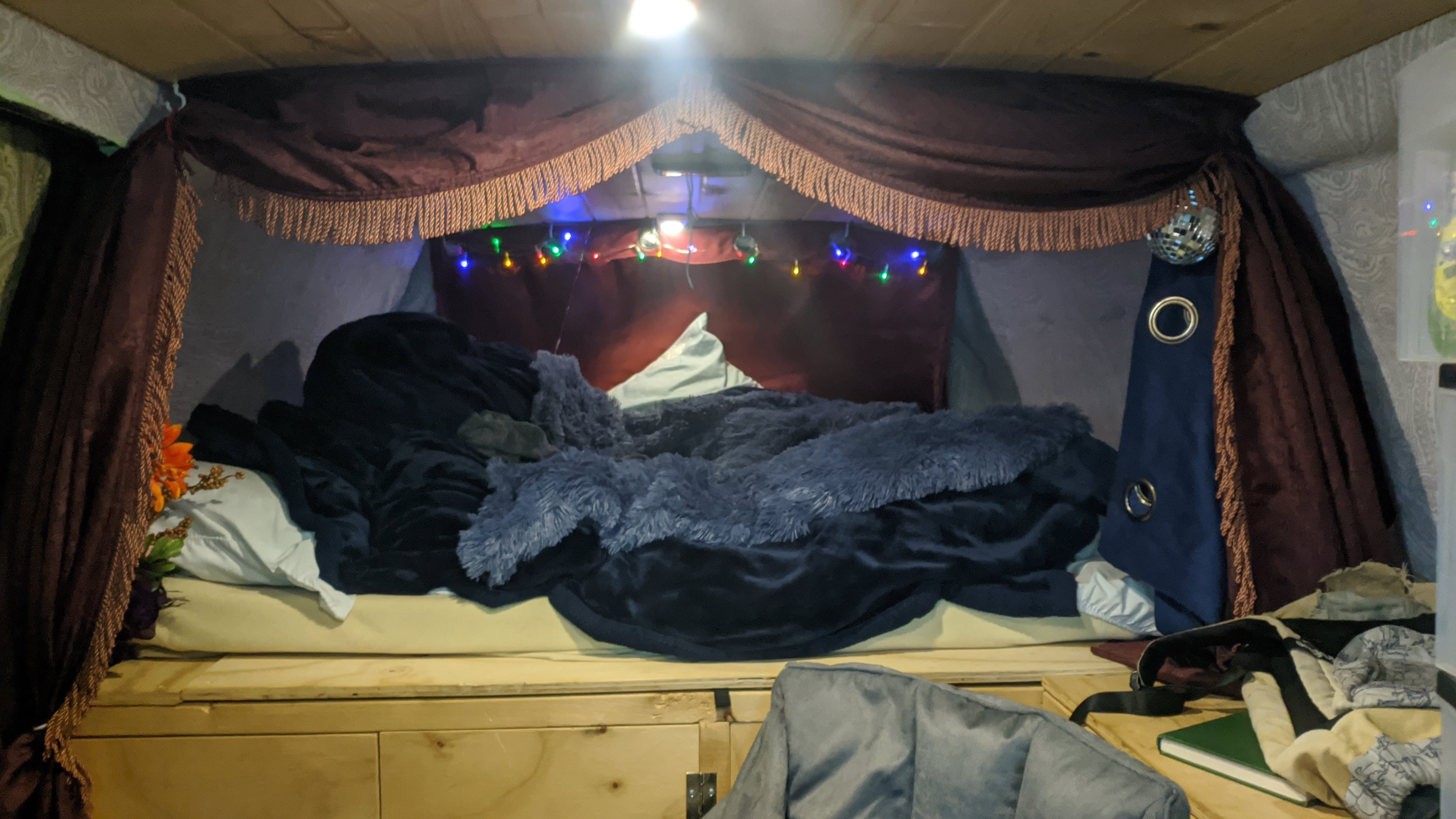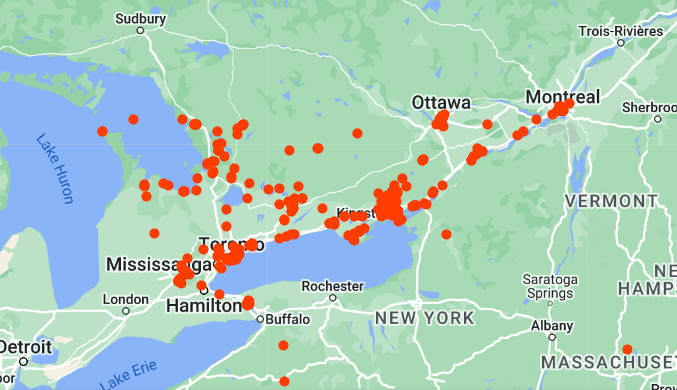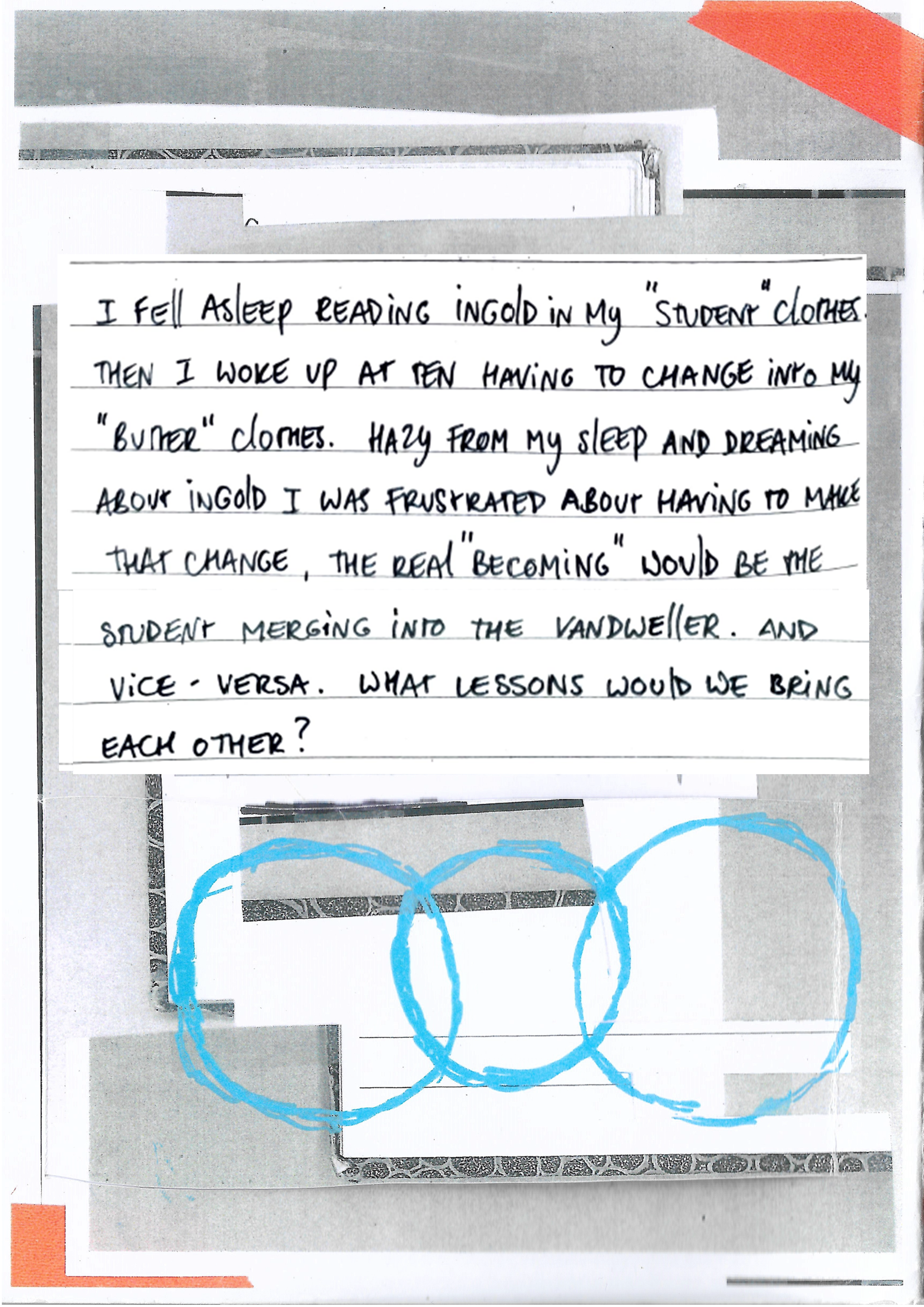Conference calls from the road: Difference between revisions
No edit summary |
|||
| Line 24: | Line 24: | ||
[[File:Googlemaps history .png|thumb|Screenshot of googlemaps showing my location history in Ontario 2019-2024]] | [[File:Googlemaps history .png|thumb|Screenshot of googlemaps showing my location history in Ontario 2019-2024]] | ||
=Writing and | =Writing and Reading in Flux= | ||
Practices of reading and writing, like any other practice, are co-constitutively shaped by the material conditions and possibilities around them. They do not somehow happen in a vacuum. | Practices of reading and writing, like any other practice, are co-constitutively shaped by the material conditions and possibilities around them. They do not somehow happen in a vacuum. | ||
Revision as of 12:26, 28 November 2024
On September 11th of 2020, the second of what would in total become three- two-hour long– conference calls between three principle investigators, me and several representatives of the Gjoa Haven HTO, took place. I was, in the week of those conference calls, self-isolating in my campervan “Butter”, and taking these calls “on the road”.
Two months prior, I had returned to my apartment in Kingston, Ontario- from my stay in the Netherlands, where I had sheltered during the first wave of the Covid-19 pandemic. The reality of returning to Canada as an international student, during the Covid-19 pandemic, was rough for me. Not so much physically- I recognize my immense privilege to have had the possibility to return to my home country and be in proximity of my family and loved-ones during the first months of the pandemic while remaining healthy and safe. Instead, my struggle was social. Having a high-risk parent, I did not take shelter in my family home in the Netherlands, and as a result had to pay rent for apartments both in Kingston and the Netherlands. My commitment to be present, and make a new home in Canada, combined with the financial stresses of double rent- eventually drew me back to Ontario at the first seemingly reasonable opportunity. Once back in Ontario, I was stuck in my tiny apartment by myself, without a university campus to go to.
To be somewhat more independent and self-reliant I had bought a campervan: “Butter”, and had taken it out in September to gain a more embodied understanding of the country I was living in. Making sure to still take covid-precautions into account, I had stocked up on groceries in my local Kingston “Food Basic” grocery store, and continued isolating myself. I however did so from the road, while exploring more of the province.
Move onwards if you would like to join along for the ride. Alternatively you could follow along the pressure ridge of Covid-19 to read more about how the pandemic has impact my personal whereabouts over the remainder of my PhD.


Ice-Pressure Ridge: Personal Whereabouts
Butter
"Butter", my campervan, became an important companion to my research. As times remained ongoingly uncertain, and several waves of Covid-19 variants kept reappearing, I had not- after cutting my initial trip to Coral Harbour short in March 2020- managed to return to the North for fieldwork. With the campus, and most of Kingston’s public life shut down, I had decided to give up my apartment in Kingston in June, 2021, and chose to base myself closer to "home", in the Netherlands- awaiting my moment of return to the North.
Having bought Butter, it remained possible for me- after Covid restrictions were lifted- to spend extended months of time in Canada despite lacking an apartment. Butter provided a way of trasport and a comfortable place to sleep. Butter also provided me a way of staying connected to my friends in Kingston and allowed for my journey as a guest within the country to continue. In fact, Butter provided a completely different perspective to the country, than remaining in my apartment in Kingston would likely have offered me. Butter mobilized me, and its limited interior space would push me to spend a lot of time outside. I went on walks, wrote in my diary and read books that I had borrowed from the Queen’s libraries across the region.

Writing and Reading in Flux
Practices of reading and writing, like any other practice, are co-constitutively shaped by the material conditions and possibilities around them. They do not somehow happen in a vacuum.
The material circumstances of my PhD have slowly unveiled themselves as being in a constant state of flux in-between different geographical locations. Not all seasons are suitable for living in a campervan in Ontario. Funding and project cycles do not adapt to personal circumstances, and neither do Northern communities when it comes to their seasonal window of opportunity to act on their own responsibilities, desires and routines. Responding to these fluctuating conditions and possibilities, I was launched into a process of constantly moving-in-between places. For three years my physical whereabouts were intra-dependent with the unfolding of the global Covid-19 pandemic, the seasons, the schedule of the BearWatch research project, family-affairs, friendships and romances. I was constantly travelling in-between Ontario, Nunavut and the Netherlands, as well as timezones, geographies, and climates, while partially living in Butter, with friends or in my apartment in the Netherlands.

Dwelling
The result of this constant movement was a stronger attuning to the particularities of being “present” in different places and the importance of ‘dwelling’ in all its plural manifestations of shelter and sedimentation. Keeping an auto-ethnographic research journal has assisted in making the process of such attuning insightful. The fourth year of my research anchored me more firmly in the Netherland- as the BearWatch funding cycle came to an end and the push and pulls of the project demanded fewer physical relocations. I found time and space to dwell with my (auto-)ethnographic writings. This writing shaped not a final stage of my work - reporting on, or describing the insights produced by a linearly executed research design for the purpose of disseminating - but rather formed a continuation of the research itself. Re-turning to the material, while blurring hard divisions of practice and theory to perform my writing as a space, and practice of emergent, reiterative, and ongoing processes of encounter and coming to know.
